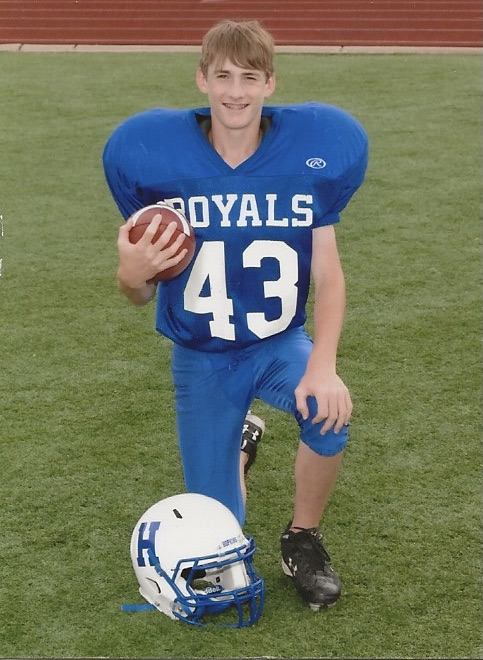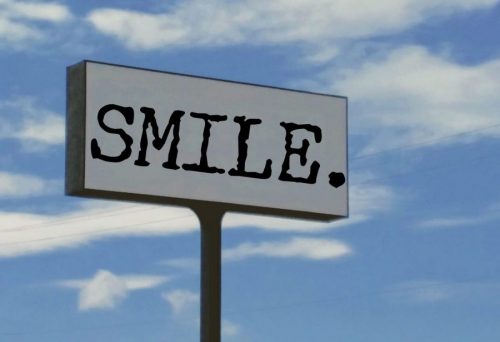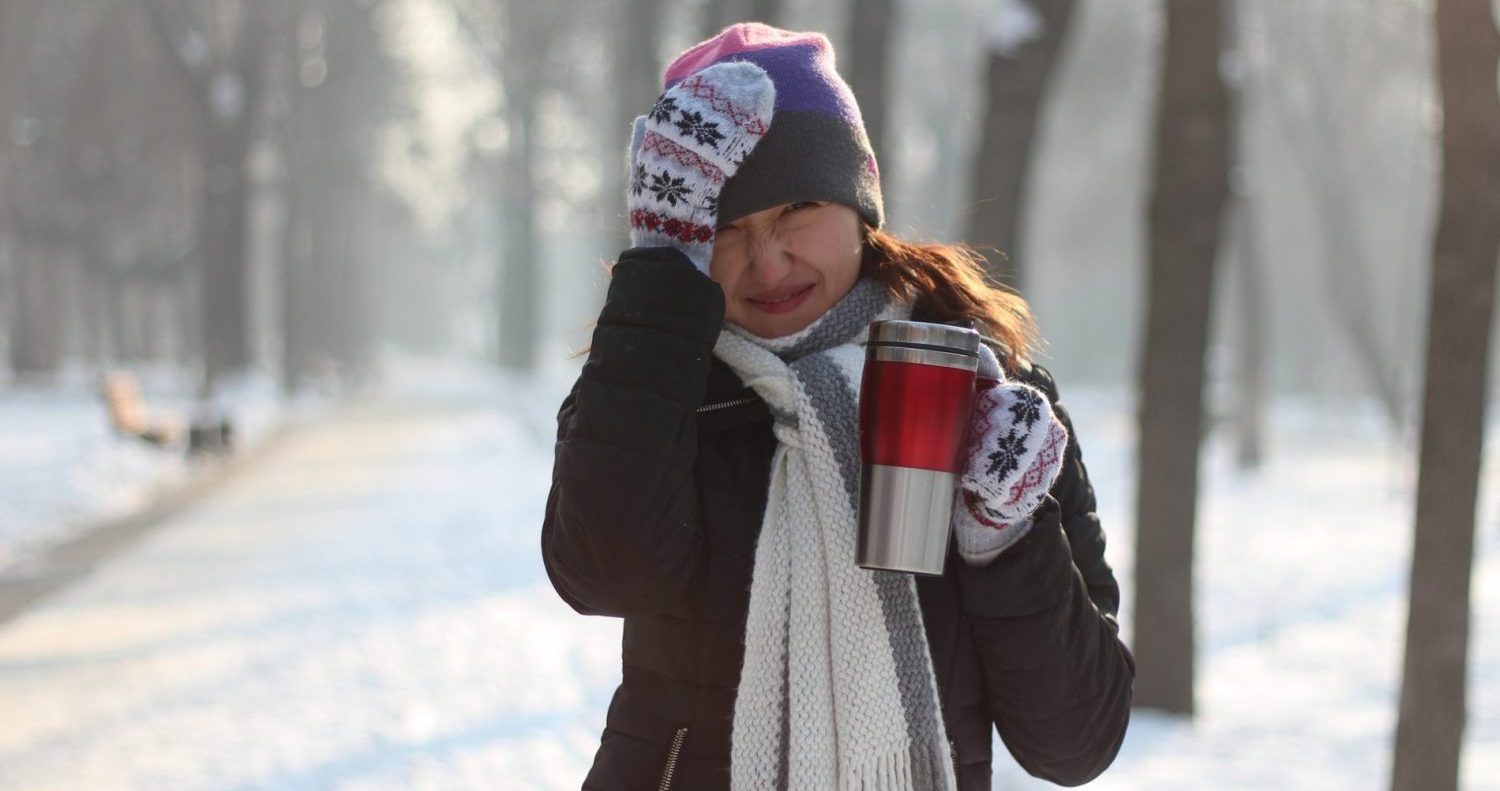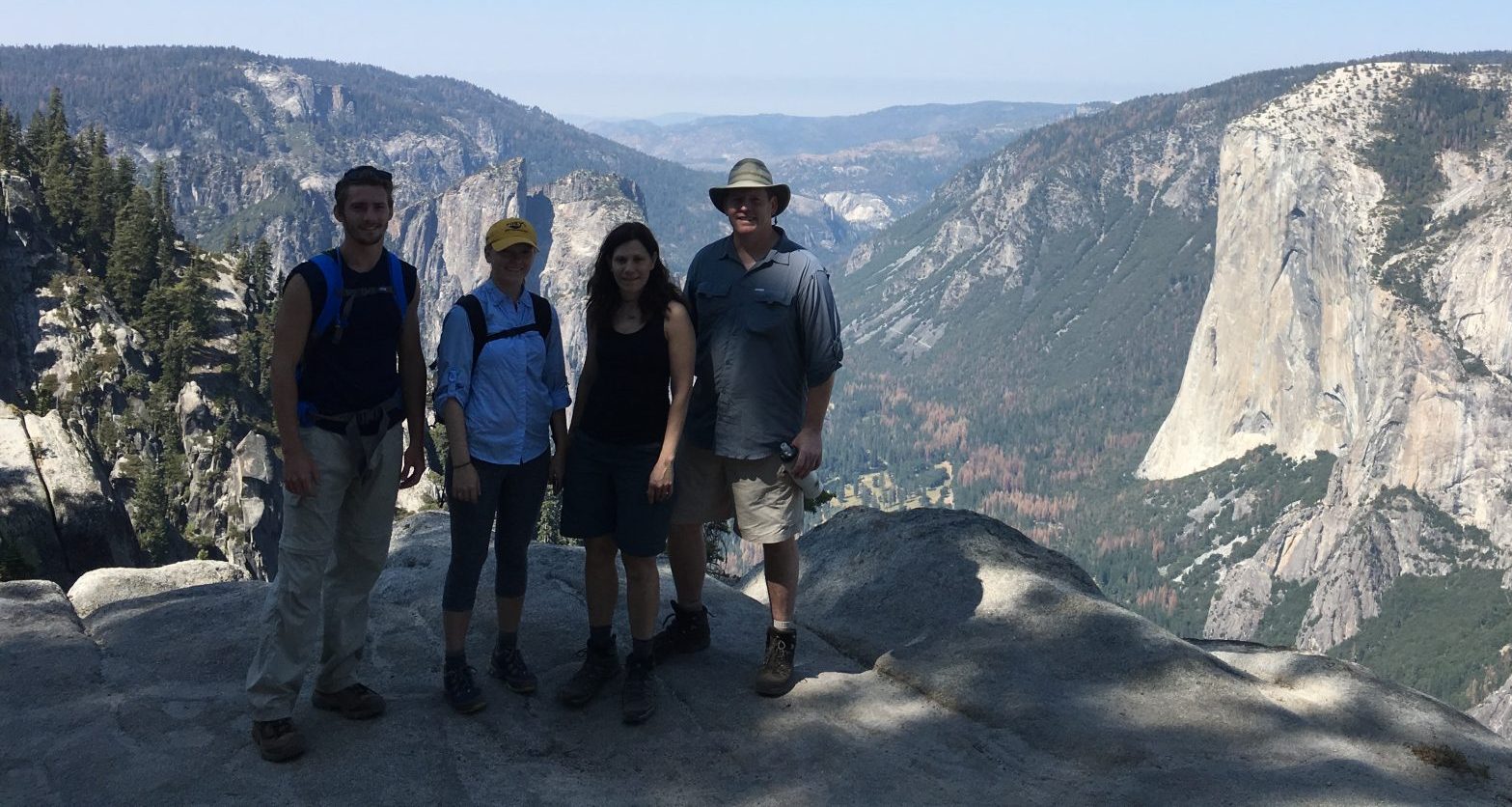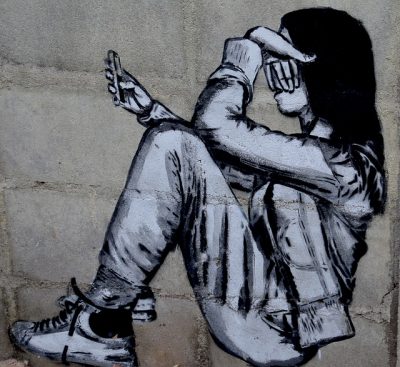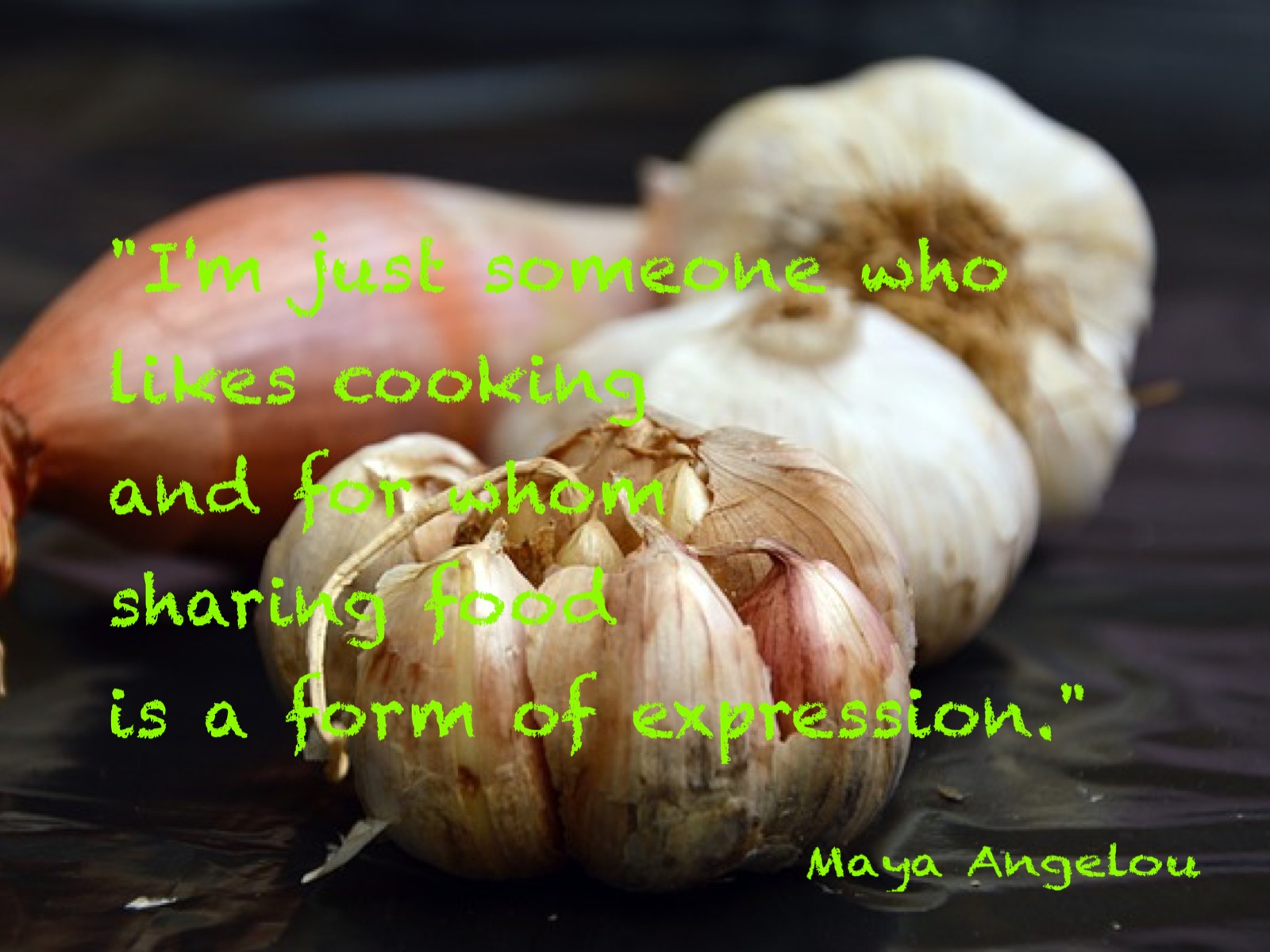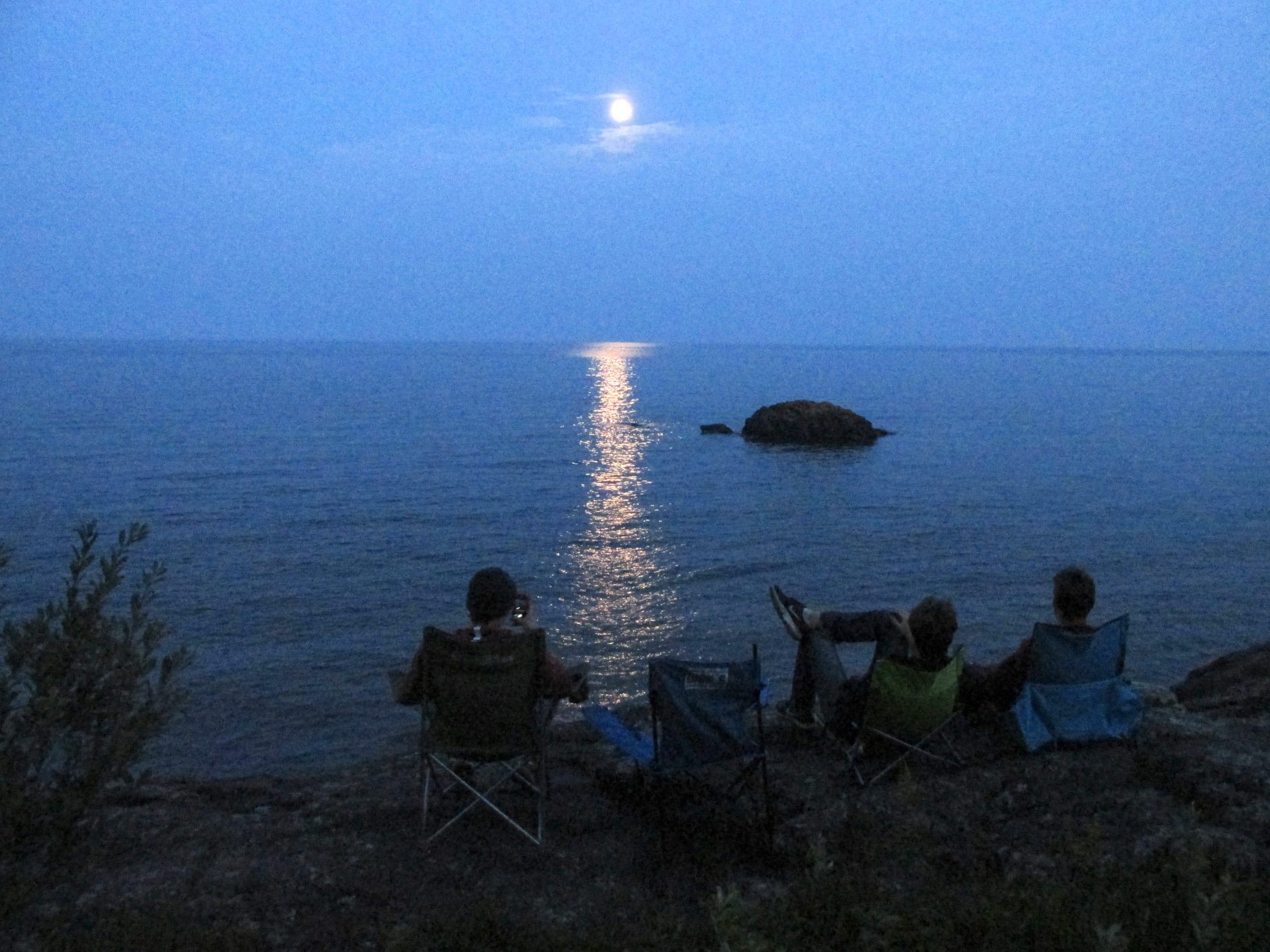Mental strength and determination can be stronger than physical strength, demonstrated by the 1980 USA Hockey Team and my son in eighth grade football
Mark Pavelich, a Miracle on Ice 1980 USA Olympic hockey player, was doing better until his death last week. He was receiving court-ordered treatment for psychological distress. His sister believes Pavelich suffered from chronic traumatic encephalopathy (CTE), caused by the repetitive brain injuries suffered through his career with the NHL. Despite his smaller size, he had an inspiring hockey career. He was most noted for his time with the New York Rangers and his integral role on the USA team to win the gold medal against the Soviet Union. The 1980 Olympic game was a David-Goliath event. The favored Soviet Union was heavily favored being a four-time defending gold medalist.
Pavelich’s family will have his brain analyzed through an autopsy to determine if he suffered from CTE. The common symptoms of CTE include confusion, impaired judgment, aggression, and depression.
My husband shared Pavelich’s death with me the day before the third anniversary of losing our son. He mentioned the similarities of Pavelisch being smaller in size for the sport. A statement by the New York Rangers described Pavelich as determined and passionate. My son had such tenacity, spirit, and determination he used that to overcome his smaller stature. He also had multiple concussions from sports, and we both wonder if this had an effect on his brain as he aged.
One of my son’s coaches spoke at his memorial service. I asked his coach to write the story he shared so I could recall it later. The story has minor parallels with David-Goliath, demonstrating my son’s mental strength to overcome his size at a young age. This is a portion of the remembrance he shared at my son’s service.
A Coaches Story
“Will had so many great qualities about him. He was smart, good-looking, kind, and generous. Outstanding characteristics that we all admire. I had the privilege to be one of Will’s coaches in football, hockey, and baseball. And a privilege it was, as he was respectful and eager to show others that he could always perform at his best. He consistently came with a smile at practice and games.”
“I have a fun short story about Will that I would like to share with all of you that I believe captures Will’s spirit.”
“His dad and I were coaching the 8th-grade football team together, with both of our sons participating. We were working on teaching the kids how to tackle and be safe while doing it. Now our team at the 8th-grade level had four kids that weighed over 225 pounds. Kenny was one of these kids, and I was using him to help demonstrate this tackling drill. Kenny was lined up between the two tackling dummies, and I asked the rest of the team who would like to go up against Kenny? It was quiet, and no hands went up. I looked at my son, and kind of gave him the evil eye; he looked back at me and gave me the look of “are you nuts? No Way!”.
Now Erik was about the same size as Will.
Pretty quickly after that, this young man named Will volunteered for the drill. I looked at his dad, and he didn’t say anything, but I got the look that this better work or Will’s mom will let me hear it. Will stepped into the drill and made a perfect tackle, Kenny went down, Will didn’t get hurt, and he demonstrated to the rest of his teammates that even the smallest kid could tackle the big guys. He got up from the drill with a huge smile. I think his performance that day at practice allowed us to be undefeated that year.”
Three Year Angel Anniversary
Three years without my son has been unbearable for us. We think about him every day. I know he is with us, along our journey, us here and him there. He is listening and watching.
Those who love my son and his family cannot be together on this anniversary because of COVID-19. Still, I ask you to carry on the tradition of writing a message to him and float it up in ashes. He will receive it up in the heavens.
Pass along a Will story to wrap it around it ourselves, easing the loneliness from not being together. Peace and love to you.

This crisis can affect our mental and emotional state. I know grief, but this is additive.
Shortly before the COVID-19 pandemic ensued and governors ordered stay-in-place, my family passed the second- year milestone without my adult son. He took his life shortly before his twenty-fourth birthday.
I know grief; it sits on my shoulders and is my constant companion. Since my son’s angel anniversary, I am experiencing old symptoms of grief that had previously subsided. I have little desire to be productive: I lack focus, and I am feeling anxious and angry.
Grief is an individual experience and isolating on its own. The grief I experience is different from that of my daughter and his father. Similarly, the experience I have with the pandemic is different for me than it is for them.
My husband is a small business owner, and the stress he carries is tremendous, concerning his safety, the safety of his employees, and the financial loss. When doing the round-robin on family or support group conference calls, our experience is too deep to comprehend for others as they quickly move on in the conversation. Each person is capable of dealing with their pandemic-stricken situation and loss, yet, they feel helpless in ours.
After the death of my son, I found writing as therapy, and with the encouragement of my therapist, I started a blog. I have not been able to write since the virus exploded across the U.S., even with the extra time I now have. I am feeling the loss of socialization, a warm hug, distractions, and forward-looking things-to-do. While these losses are hard, I know they are temporary. They are nothing like the loss of a human being.
As I take in the daily news, I feel disbelief and anger. The root of my mental state is I am distraught over the state of my country.
I am grieving the loss of life and lack of competency from our highest political offices. This unfathomable event has occurred, and the self-serving, inept leadership response is taking a toll on human lives. I am super sensitive to it, having lost a child.
Political leaders have a moral responsibility to put citizens before self-interest. Still, the defiance of intelligence and slow response to act puts the U.S. at a higher loss of life than any other country.
Those same leaders lack empathy or comprehension of the impact caused by their lack of leadership; yet, they still retain supporters. Other political leaders are remaining silent over the fear of jeopardizing party relationships or concern over public polling numbers. At the same time, these leaders’ slow or lack of adequate response is putting the burden on everyday heroes who are emerging.
There is an absurdity to the response of this global heath pandemic that has left me distraught.
A new absurdity arrives each day in my inbox via social media and the news. These, at the moment, are the most absurd:
- Political leaders, propaganda news outlets, disregard facts, science, and the truth. Unsubstantiated theories are made viral and are the basis for decisions.
- The President treats his press briefings as a reality show and touts his ratings in comparison to reality television shows. He calls the press names and their reports “fake” when they ask tough questions he cannot answer. His modus operandi is to create false hope.
- The President will fire anyone who contradicts him, even if those in his administration based those contradictions on solid facts. The President values loyalty over competency at the expense of the American people.
- African Americans are dying at higher rates from COVID-19, bringing to light underlying societal issues never addressed. There is a disproportionate amount of poverty, inadequate housing, limited access to good health care, and chronic illnesses such as diabetes and hypertension.
- Right-wing talk shows give air time to those making excuses and minimizing the loss of life. Former Fox News host Bill O’Reilly is the latest example, saying that many of those who have died from the coronavirus “were on their last legs anyway.”
- The Wisconsin GOP and Supreme Court forced voters to choose between their health and their civic duty, likely suppressing the Democratic vote in the primary election. Wisconsin’s Republican State Assembly Speaker Robin Vos even assured voters it was safe to vote in person while dressed in full PPE.
- Texas Lieutenant Governor Dan Patrick and other conservative radio hosts are arguing grandparents would be willing to sacrifice their lives for the younger to open up the economy.
Coping
For my sanity, I have gone to a world according to the late-night talk show hosts who highlight the absurdity. So the crisis does not consume me; I limit my daily news to a select reputable news outlets known for reporting truth and facts.
In my free time, I am going back to the basics by cooking from ingredients in the freezer stocked two years ago when we did a lot of entertaining. It was something we enjoyed doing as a family before my son died, now we go simple. Leftovers go back into the freezer to eat in the weeks ahead of us for staying-in-place.
It is going to take time to come out on the other side of the Coronavirus. I look forward to November 3, 2020, when I can cast my vote to bring back sanity. Until then, I make an effort to listen with empathy when people share their struggles. I am making more of an effort to connect with others, even if it is a simple text message of, “I am thinking of you.” I am acknowledging why I feel so distraught. I will not run away from the news and chaos, but I will take time for myself, go for a walk or run, do yoga, or take a bath. In the meantime, I will not be hard on myself when writing seems so foreign. Instead, I stay up late binge-watching shows on many subscriptions of streaming services I recently purchased.
Take the time to talk to your mental health care provider or behavior health counselor.
A recent opinion piece in the New York Times on feeling grief during the Coronavirus pandemic received many responses from readers. Many are feeling grief for people, normalcies, and rationality. My therapist’s office called to set up a virtual check-in. I have not seen him for several months. It is a good time for this connection. It is essential for everyone to take care of their mental health, especially now in this crisis, as it can take a toll on one’s mental and emotional state.
Here is a word from a psychiatrist at NYU Langone Medical Center about the importance of taking care of your mental health, shared in live broadcast event on April 18, 2020, One World: Together at home – celebrating heroic efforts of community health workers.
“Many people are experiencing fear, anxiety, and grief during this crisis, and it is normal. If you are experiencing persistent low mood or anxiety, as well as changes in sleep, appetite, concentration, trouble experiencing joy or motivation, talk to your mental health care provider or behavior health counselor. If you have had a prior history of anxiety, mood, trauma, or substance abuse, or on the front lines, you too can be more vulnerable. Make time for your mental health, talk to a trusted person about them.” and lastly, “Remember, You are not alone.”
The billboard should have said, "Do something positive to make someone smile."
There are many billboards on the interstate between Fargo North Dakota and Minneapolis, Minnesota. I take this route to visit my daughter, who is attending the university. The billboard advertisements are unmemorable as there are many, not grasping the attention of those passing by. One caught my attention, though. In black letters on a completely white board was a one-word sentence, SMILE.
The billboard brought back a memory when someone told me to smile at an unhappy time in my life.
The cafeteria was located in the basement of my office building. Each day I went down to purchase my lunch and take it back to my desk to eat while working.
Six months into a new job at a top-quartile Fortune 500 company, was ten times the size of companies where I spent my career. The company was coming out of a corporate scandal, and they hired people to help them implement changes to right the ship.
I was lonely in a company of 100,000 employees. I previously knew how to navigate in my old job. Now I was one in a vastness of people structured in a labyrinth of organizations pieced together from acquisitions with deep traditions.
Each night I went home from work defeated.
The rank and file had not yet come to the acceptance that their current culture and practices were the reasons for the corporate issues with regulators, auditors, the SEC, and the subject of lawsuits. My assignments came with challenges to change something hard-coded in the DNA. Each night I went home defeated. Within six months of landing there, I was actively searching for alternatives to get out, and I was not the only one.
I compounded my work-life with demanding home life. I went back to school for an Executive MBA, so I could have options and safeguard our livelihood, as I was the financial safety net. My husband went through a layoff, and we decided for him to take the path of entrepreneurship. He was gone all the time, and I was working long hours and studying long nights. We both brought our stress into the house and did not hide it from our children.
An outside agency staffed my work’s cafeteria. They came to know their customers and had cordial conversations with us as we went through the serving lines. The cashier was a friendly gentleman in his late forties. He was pleasant to me as I went through the line each day. He sensed my body language and wrinkled face from the unhappiness. He tried to get me to bring some positivity each day through his friendly conversation, prying enough to get something beyond the response “Fine” when he asked, “How are you?”
Why you should not ask some to smile.
This day, while tabulating the cost of my food selection, he looked up at me and said, “Smile.”
I did not think about it much, but now having seen the billboard, I realize that in asking me to smile, he was asking me not to express my genuine emotion. Assuming positive intent, I think maybe he thought if I show positivity to others around me, others would too, and everything would be better. That billboard could also be sending a message that smiling will solve something.
From a different perspective, a billboard sending a mass campaign to smile belittles the reasons why someone is not smiling. Asking people to smile when they are not feeling that emotional state is asking them to wear a mask.
The reality is life is not a rainbow and butterflies. Allow people to be honest. It would help.
We should not have to hide our negative emotions. It should be okay to express our sadness, anxieties, and the actual state of being. By asking someone to hide true feelings, pushing them down to only arise in private, is asking them not to feel. The reality is life is not a rainbow and butterflies. Allow people to be honest. It would help.
The societal issues we face in 2020 are not that simple where we can solve them by asking someone to smile. Instead, we need to advocate and elect public officials that will change the negative trajectory:
- 1 in 5 in the U.S. is mentally ill.
- 1 in 25 experiences a serious mental illness.
- The overall suicide rate has increased by 31% since 2001.
- Suicide is the 10th leading cause of death in the U. S. and the 2nd for ages 10 to 34.
- Loneliness is a new epidemic. Forty-seven percent of Americans often feel alone, left out, and lacking meaningful connections with others.
- And so many other issues: affordability and accessibility of health care and prescription drugs, economic disparity, voter suppression, combating climate change, gun violence, hate crimes, discrimination, and on and on.
In place of asking someone to smile, do a positive act to make them smile. Ask them, “How are you?” Wait for a genuine response. Say hello to your neighbor. Offer a helping hand to someone in need, regardless of their race, gender, sexual orientation, etc. Stand up to the bullies, which includes verbal abuse through condescending name-calling. Follow up when you know someone is struggling. Be inclusive.
Create or seek environments where people respect you for your real character and not your appearance on the outside.
I am a stronger person to stand up to the pressures of work. I am still trying to figure out how to live this new life without my adult son, who died by suicide two years ago. Please do not ask me to smile for you, but you can ask me how I am if you are willing to hear a real response.
Postscript
There are many articles, and social media feeds on how men asking women to smile is sexist. There was a media spike during Hillary Clinton’s 2016 presidential campaign. In hindsight, I tend to agree; it is sexist.
Listening to music can be am emotional trigger. It can alter or enhance a mood, or relieve stress. Melancholy music can make you feel sad. Rhythmic music can make you want to dance or move your body. Romantic music will put you in a loving mood. Music also evokes memories that were long gong.
"Music triggers precious memories, and memories bring you back to me. I feel a connection to you when I listen to your playlists, in the car on road trips, and while doing things that help me find peace."
When my daughter was home on winter break from college, she shared with me a new song she heard, “Memories” by Maroon 5, (2019). The first time I heard it, I recall thinking it was a lovely song.
"I think of you most often when the world is muffled around me, in the car, in the shower, outside under a dark sky."
After she had gone back to school, and things had slowed down from the holidays, I was alone in my car, driving. Driving, when by myself, creates a muffled-like experience, allowing my thoughts to come forward. I am free from the activities of work, away from social media, and the distraction of television and home activities. It is quiet in the car, even when the radio is playing in the background. When I know the way to my destination, and the road conditions are stable, driving is second nature. This allows my mind to wander.
Being in the shower provides a similar experience. Activity outside of the bathroom is muted by the sound of falling water. The confinement of the shower creates privacy for my thoughts.
Other loss survivors have shared that they also cry in the car, sometimes causing them to lose track of time and distance; they end up missing turns or destination exits. One of my friends, who lost her adult daughter, shared about one of her crying episodes.
She was on her long commute home from work in stop-and-go traffic on the highway. The long slow drive was the perfect incubator for bringing the grief, emotions, and thoughts to the surface. She was sobbing through her drive. She came out of her state and looked around to the car stopped in the lane next to her. The driver must have been watching her as the traffic slowly moved. When their eyes met, he grabbed a tissue and motioned as if handing it to her through the window. This kind gesture made her laugh, and it was a distraction to get her out of a moment of sorrow.
Driving in the car, by myself, is when I heard the song Memories, for second time. This is when I focused in on the lyrics and their meaning.
In the car is where I heard the song “Memories” for a second time. The muffled sound of the outside world allowed me to focus on the lyrics. The words connect listeners with those we have lost, toasting the memories, as the memories are what brings the loved ones back to us. Maroon 5 released the recording in late September 2019, fitting for the time over the winter and holidays, which can be when loss survivors really miss their loved ones. For Christmas, the New Year’s celebration, my daughter’s twenty-first birthday, ski season, football playoffs, and Valentine’s Day, my son is not present.
Are his friends connecting to the song, toasting to the memories with my son?
I think of my son’s friends and how much they are missing him as well as missing his friend who died from cancer several years before. I wonder if they, too, are connecting to this song as I hear these lyrics from “Memories”:
Cause the drinks bring back all the memories of everything we’ve been through.
Toast to the ones here today. Toast to the ones that we lost on the way.
Cause the drinks bring back all the memories, and the memories bring back you.
There’s a time that I remember when I did know no pain
When I believed in forever, and everything would stay the same
My heart feels like December when somebody says your name
Cause I can’t reach out to call you, but I know I will talk to you one day. (Adam Levine, et al., 2019).
This was the second year his friends gathered for their annual holiday gift exchange party since my son died. His friends were significant to him, and time with them was a priority.
My son will always be in their memory and heart. If he had a voice, I think he might have told his friends, as they gathered,
“Even though I am only with you in spirit this holiday, I will be there if you think of me.
“Friends, when you, everyone, is back in town, and you come together, picking up the conversation right where you left off, I am there too. I am at your gathering when you laugh at the dry humorous jokes that are shared. I am there when you talk about the MN Vikings’ season. When you discuss the Marvel movie series, and the next installment of other movies we enjoyed together, and the latest comedic act out on Netflix, I am there. I am there when listening to the well-crafted music playlist that sets the celebratory mood and inspires you to dance. I am there when you select the perfectly intended Secret Santa gift for the person whose name you have and later, when you exchange gifts, with warmth and laughter.
“Physically, my chair is empty, but I am there with you in your memory, in the signs you least expect, and the warmth in your heart. I am there. Go Vikings!”
I will carry on my son's soft spoken nature in the fight for love, inclusion, and respect for opinions, all races, sexual orientations, religious beliefs, and basic human rights.
Additional “Memories” lyrics speak to feeling disheartened and how to use the loved one’s memories to carry the torch for the justices vital to them. I honor my son as he was a fantastic person. I have chosen to advocate by bringing his friends, family friends, and our family together annually to walk in his memory to raise money for suicide prevention. I advocate for inclusion. I write his story, so the memories never fade. He may be an uncle one day, and I want his nieces or nephews to know him.
There’s a time that I remember when I never felt so lost
When I felt all of the hatred was too powerful to stop
Now my heart feels like an ember, and it’s lighting up the dark
I’ll carry these torches for you and know I’ll never drop.
Everybody hurts sometimes
Everybody hurts someday,
But everything is going to be alright. (Adam Levine, et al., 2019).
I have added the song to my favorite playlist. I listen to it in the car when alone where it is quiet and let the tears flow.
References
Mamo, Heran. “Here Are the Lyrics to Maroon 5’s ‘Memories.'” Billboard. N.p., 01 Oct. 2019. Web. 22 Jan. 2020.
Maroon 5. Adam Levine, Jacob Kasher Hindlin, Jonathan Bellion, Jordan Johnson, Michael Pollack, Stefan Johnson, Vincent Ford. “Memories.” 222Interscope, 2019, Spotify
An Emotional Connection to The Music from Frozen, Frozen II
In the movie, Frozen II was a personal message for the three of us, his father, sister, and me, to keep going one step at a time, no matter how inconsequential; to do the next right thing.
When visiting family over the holidays, the lot of us always take in a blockbuster movie. Sometimes the whole group of parents and children went to the same film; other times we split up. The movie choice historically was from the latest Disney Animation, Harry Potter or Marvel series, or other independent family comedies.
In 2013 the Disney movie Frozen released in theaters. It was my daughter’s choice to select that holiday because she is the youngest of the cousins at fifteen years old. The other cousins were adults, the next youngest being my son at nearly twenty. Frozen was not my son’s first choice, but we all went along. Fast forwarding, the movie was a box office hit with the best original song, “Let It Go.”
“Let It Go” has become the anthem for those living on the margins, struggling with mental illness or other challenges, giving them the empowerment to uncloak what they have been hiding and accept the things that made them different. The song permits a person to let go of the past, or whatever was holding one’s self back (i.e., fears, doubts, insecurities) and releasing from the expectations of others.
My son had a connection with the song "Let It Go" from Disney's Frozen
The movie came out when my son was in college at Montana State University. I found the song on my son’s Disney playlist on Spotify. He introduced the movie and music to his exchange-student friends. A college friend shared he had great enthusiasm for the film. It was their go-to movie when feeling melancholy. For amusement, he would send his friends’ humorous Frozen-themed memes through the Snap Chat application (How I wish those were retrievable). He would sing the ballads on road trips, and these were his best performances.
I wonder if the song has special meaning for my son, similar to those on the fringe who have shared their attachment to the song or perhaps he loved the song simply because it is a great one and a way to connect with friends.
The Video Gift - Singing "Let It Go"
Every story, thought, memory, picture, and video of my son that someone shares with me is a gift. I received such a gift last summer. One of his friends from Kent, United Kingdom, who worked at the same summer camp in PA, shared a video. My son is singing “Let It Go” with a karaoke machine in a small town bar with camp friends.
Her additional gift was a story, which I am sharing with you.
“A video with friends and your son has just popped up on my Facebook timeline from five years ago today. In the video, I am singing karaoke, and your son is dancing and singing along with our two other friends.”
“The camp where we worked is located outside of Poyntelle, PA, in the Village of the Preston Township. The backdrop is beautiful rolling foothills of the Pocono Mountains, surrounded by many gorgeous lakes and ponds.”
The villages are not municipalities, so the Census Bureau does not keep records of the population size, but I did find on bestplace.net the population size of Poyntelle at 20. There are seven named streets in the township. The town supports two summer camps outside of the city limits, one being Poyntelle Lewis Village, where my son worked for two summers.
“There was a small group of camp workers above the drinking age. On the rare evenings free, we would venture out to have a drink and have time away from the campers. We became close friends from these fun nights out.”
“The only bar in the town is The Poynte, and The Poyntelle Dragon was the bar’s signature drink, meant for sharing, which we did. We played lots of card games and shuffleboard. After an evening of fun, we would stumble home around one or two o’clock in the morning, knowing well we had to be up at around seven am the next day. The night the video was taken was especially fun.”
“I have so many fun memories with your son, and I still think of him, especially during the summer, when my camp pictures pop up on Facebook.”
I am thankful for my son’s friends. I remember him telling me how special and consequential they were to him. I can see why.
Tissues are required for Frozen II. The music lyrics from the song "The Next Right Thing", have a special meeting for the grieving, in despair, or feeling betrayed.
Frozen II was released shortly before Thanksgiving this year. The three of us, my daughter, her father, and I went to see it together, keeping with tradition. Once again, there is a list of accolades for the movie and the music. Similarly, there is a song for those struggling mentally, grieving, in despair, or feeling betrayed. It encourages at a time when things look hopeless, by doing one positive action at a time, doing the next right thing – not giving up.
The lyrics are so relatable, especially for my daughter, who lost her brother. The character Anna is struggling at a pivotal time in her life and longing for her older sister, Elsa. My daughter saw the movie beforehand with a close friend and forewarned me to bring tissues. She was correct. I sat with the movie replaying in my mind for weeks. Then I went back to listen to lyrics. Comprehending one phrase at a time, then all together.
Verse 1
“I’ve seen dark before
But not like this
This is cold
This is empty
This is numb
The life I knew is over
The lights are out
Hello, darkness
I’m ready to succumb.”
Verse 2
“I follow you around
I always have
But you’ve gone to a place I cannot find
This grief has a gravity
It pulls me down
But a tiny voice whispers in my mind
You are lost, hope is gone
But you must go on
And do the next right thing,”
Verse 3
“Can there be a day beyond this night?
I don’t know anymore what is true
I can’t find my direction; I’m all alone
The only star that guided me was you
How to rise from the floor
When it’s not you, I’m rising for?
Just do the next right thing
Take a step, step again
It is all that I can to do
The next right thing.”
Bridge
“I won’t look too far ahead
It’s too much for me to take
But break it down to this next breath
This next step
This next choice is one that I can make”
Verse 4
“So I’ll walk through this night
Stumbling blindly toward the light
And do the next right thing
And with the dawn, what comes then?
When it’s clear that everything will never be the same again
Then I’ll make the choice
To hear that voice
And do the next right thing.”

(Anderson-Lopez, Kristin, and Robert Lopez, 2019)
In the lyrics was a message that when the grief is holding us down, to keep going; to do the next right thing,
In the lyrics is a message for the three of us to keep going one step at a time. It would be so much easier to hide under the covers and not get out of bed. Not face responsibility or pursue any feeling of happiness given this complex grief and devastation from the loss of my son and my daughter losing her only sibling.
I do not know how to operate in my new life, and looking too far ahead is painful because he is not there with us in the same way as before. It is okay just to have the ability to get through the next day. It is okay to be where I am at in my life. Later, I may have the strength to take on more. At his moment, I take it as a sign to do things a little at a time.
Let It Go
I am sharing the Facebook video of my son singing “Let It Go, with his friends in that small-town bar, where they are the only patrons that evening. I cannot download it or make a copy of it, so I recorded it with my phone. It is grainy, but it still is fantastic — a joy to watch. Everyone is beautiful, but my son is strikingly handsome, beyond what his mother thinks.
References
Bell, Kristen. “The next Right Thing.” The Next Right Thing. Kristen Anderson-Lopez, Robert Lopez, Dave Metzger, Tom MacDougall, 2019.
Album: Frozen 2 (Original Motion Picture Soundtrack)
Related Blog Posts
It will be the second year of the holidays after the loss of my son. In place of coping, we are going to celebrate by focusing on the traditions that bring him with us while creating new ones to make it easier.
After passing the first angel anniversary of my son, my sister commented that his father, sister, and I survived the first year of significant milestones. There was a silent imply that things should get better as the worst of the grief process is over. The holidays are approaching again. It will be the second year without my son, and it is not any easier. The longing, loneliness, and sadness are greater than year one. Everything I have read and felt thus far in year two is much worse than year one.
Of course the first year I was in shock; my brain was consumed with grief. Outwardly I appeared to be functioning, but that was a coverup. Inwardly, I was going through the motions of living, but not really living. Assisted sleep was my refuge. I lived in a daze of “firsts without my son.” I was consumed with understanding why he chose to leave us. I plead with him, or whomever who has control, “Enough already, you can come back now. I am sorry for everything.”
The second year of our lives is harder than the first after the loss of my son.
During the second year, I realize he is never coming back, and this is how life is going to be: without him. Life is gone in an instant, and death is final. There are no second chances. Our intimate family of four is now three. He was the funny one, adventurous, and got us out of our shells and routines. After his death, our lives have stopped, but everyone else’s has moved on. The extended family has happy life events to celebrate, and they have moved on to taking care of their lives’ primary commitments as expected. My son’s friends are more scarce, moving on with their lives too, getting married, having families, starting careers, and seeking adventures. Friends feeling uncomfortable with our sadness are more distant, communicating less frequently. Others who can relate have become closer.
Meanwhile, I have read that the second year is the most difficult for mourners. The shock has worn off, and the pain of grief is on full throttle. It does not get easier until year five, while year three, the fog lifts, and you begin to figure out how to live by bringing your loved one forward with you as you live out your new life (Touched by Suicide, Myers & Fine, 2006).
Sticking with some past holiday traditions and adopting new ones.
We have made it through half of the milestones in year two: my son’s second birthday in heaven, summer vacation without him, the NAMI (National Alliance on Mental Illness) fundraising walk in his honor. The second half contains the holidays. Year one holidays were miserable, and our goal was to get through them.
Therefore, this year I am not going to avoid them, but we are going to do things differently. I will keep the traditions important to my daughter and do those rituals that incorporate my son. We are also starting new traditions where we can celebrate and be happy. My daughter is my first priority, and what makes her happy comes first. Thankfully she articulates her opinions, stands up for what is essential for her, and shares in the planning.
Have a plan, but be willing to improvise.
My plans for this year may evolve, and I will be willing to throw away the ideas if they do not work at the moment. I will decorate the house to help my daughter feel the spirit of the season. I will continue cooking and baking the food my children connect with the season.
Traditions We Will Keep to Remind Us of My Son
Keeping with tradition, we will do the things my son loved:
- Sledding on Hill Top as this is what he and his friends would do in high school and even as adults after a large amount of snowfall.
- Watching the MN Vikings football game. My son could engage with anyone if they knew a little about football. He was always current with what was going on in the league.
- Play ping-pong. My son was really good at the game, having learned in college. His dad was the champion until the year my son came home from college on break. There is a video of him in college, playing with a friend volleying the ball back and forth while both are sitting in chairs and eating.
- Playing darts and cards as this is what Midwesterners do.
- Attend Disney’s latest cinematic movie release. My son loves Disney movies. He created a music playlist of his favorite Disney songs that we listen to on road trips. His friends shared multiple videos of him singing “Let it Go,” from Frozen. I think that is his favorite Disney song. He is also a fan of Marvel and the Star Wars Trilogy, which are both Disney productions. When he would come to the house, discussing these movies was an everyday conversation.
Adding New Traditions to Reduce the Longing
We will incorporate past traditions with new traditions of travel, something all four of love to do and prioritize time with those who bring us comfort and joy.
Mourners can find an influx of articles on grief and the holidays; do what is right for you.
There are published particle guides on how to survive the holidays after the loss of a loved one. You can find stories of what others do, mostly after the loss of a parent or grandparent, some about a spouse. You can find lists and tips on how to remember your loved one and cope. I found one that had 64 tips. Ugh, reading through them, I feel like it is a chore. Very few addresses the loss of a child.
I am going to do what is right for my family and me, and not force it. I will let it evolve as our grief evolves.
References
Myers, Michael F., and Carla Fine. Touched by Suicide: Hope and Healing after Loss. New York: Gotham, 2006. Print.
Related Blog Posts
Family Traditional Holiday Recipes
A friend and reader told me after reading one of my blog posts, she tried to contact me from the contact page but received an error. I have now fixed the issue.
If you tried to contact me, please try again. It is important for me to hear from you.
You know this is all new to me, and I do it all, the writing with editing help from Aunt Linda, the design, and the IT.
![]()
Consoling Partners
A friend sent me a text message, “Is group tonight? I am having a tough day. It is the eleventh month anniversary of her death.” I read her message after yoga class and called her back on the way home. We try to be each other’s consoling partners. Both our adult children recently died from mental illness.
The usual grief support group meeting I attend, and she occasionally attends, is taking a break, and we were exploring other alternatives. We decided for that night, we would be each other’s support group and continued our conversation.
I am sure our conversation started something like, “Bad day?” “Me too? Have you tried yoga to relieve the stress in your muscles? How about a massage?”
My body hurts every day. The first year after his death, the pain resided in the pit of my stomach like I swallowed a watermelon, and a twenty-pound weight was compressing my heart and lungs. My legs felt heavy as I would walk up the stairs each night to go through the ritual of lying in bed, awake for hours until I eventually gave in to taking a prescribed sleep aid.
Nowadays, the pain has moved out of my chest and to my shoulders, neck, and arms. My friend relays she scheduled a massage. We are supposed to be gentle to ourselves, so I give her encouragement for thinking of herself. I sign up for a foam rolling class.
Everything is Horrible and Wonderful
We move on to another subject. I share I am reading the memoir Everything Is Horrible and Wonderful. I explained the premise of the book, a sibling writing about her life and the death of her only sibling from addiction.
These days I read memoirs on grief and loss because I am looking for perspectives from people like me, experiencing a traumatic loss that changes any semblance of the life you had and vision for the future. I consider them as supplemental reading to my support group.
After sharing the synopsis of the book, I said, “I have not gotten to the wonderful part yet,” and we both broke out cynically laughing because life is no longer wonderful. Initially, I meant that part of the book, but then I realized I was talking about myself. I am very much living in the horrible period of life. My life is in two pieces. There is the before my son died, and then after.
In retrospect, I think the author meant wonderful is her brother, the memories with him, and the impact he had on her and the greater society, as he was a famous comedic writer and actor. For me, it is our family when the four of us were together, my son, daughter, and their father. I contemplate, is wonderful gone forever?
Life is not wonderful anymore; it is different.
Wonderful for me, is our family when the four of us were together, my son, daughter, and their father. I contemplate, is wonderful gone forever?
It seemed like yesterday when he was here, yet an eternity. It has been nineteen months since his death. He was a part of my life for nearly twenty-four years. It is too early to say what life will be like for the three of us other than I wake up thinking about him as the first thing of my day. At night the routine of watching the Late Show with Steven Colbert helps my brain settle until the sleep aid kicks in. Most hours, in-between, are irrelevant.
The three of us have done some things to move life forward. My daughter is continuing her academic education; it has not been easy considering the circumstances. We bought a piece of property along Lake Superior as a sanctuary. We are enjoying the property as we prepare to build a home. We even camp, which I said I would never do again. We raise money for grassroots programs supporting mental illness. I also returned to running because a one-size increase in pants was enough.


I pay someone to clean my house once a month, something I previously refused to consider. My husband hires the lawn mowing out. I work from home and rarely wear makeup anymore. What we do for dinner is dependent on whether going out requires wearing makeup, so more take-out. I walk our ninety-pound yellow Labrador in the middle of the workday because I cannot sit still through a typical workday.
A friend and parent who I met at Suicide Survivors, a support group, shared, “Life definitely will never be the same as before.” She is correct. Life is not wonderful; it is different.
An Internet troll is a slag for a cyberbully. You do not need to be famous to attract trolls because a person trolled me. This incident brought back my memories of being bullied and the heart-wrenching feelings when I read about my son's experience after his death. In his own words.
I have minimal followers on social media. The few comments readers post are supporting. Readers share my writing is emotionally moving. They feel a connection to my stories. Some share their own stories. Others post, thanking me for telling my personal, heartbreaking, and poignant journey of losing my child. Through my writing, I put words to grief. They get to know my son, a wonderful person sharing all that is good in this world, bringing joy to those who knew him.
It was a message that caught me off guard, and my heart sank. I wanted it gone immediately off my computer screen.
On one occasion, when I was going through a particular social media account, the little speech-bubble icon located in the top right-hand corner was highlighted. “This is new,” I thought. I rolled my cursor over the top, not opening the message completely. I saw enough to understand this was a negative message. It was addressed to me using condescending descriptors. Words in the visible sentence contained symbols in place of letters with enough of the letters to know it was offensive. I was caught off guard and wanted it gone immediately. I right-clicked the mouse and hit delete before the message opened to my full view.

I barely know what it said, but it made my heart slump. In came the negative feelings. Why did this get to me? I am an adult who has experienced bullying before. What kind of person has no empathy for a parent grieving the loss of their child from a mental illness? People can be so harsh when fueled by anonymity. I shut my computer down and walk away, contemplating what to do.
Being passive-aggressive is in my nature. I want to stealth in and prevent the person from accessing my social media account.
I am from the Midwest and a Minnesotan, and we are known for avoiding confirmation. It is one of the behavioral traits common to life-long Minnesotans. Minnesotans are so well known for these traits; there is a name for them, Minnesota nice. Because of my passive-aggressive nature, I wanted to take revenge on this person by banning the writer from accessing what I post. Unfortunately, banning is not an option, and by deleting the message, I lost the opportunity to convey a response.
Later that week, I shared the incident at my next support group meeting. They are loss survivors, but many are friends. One astute friend said, “You have been trolled.” I had an idea of what he meant, but I looked it up to be sure. It is bad. Social media trolls are online bullies.
An internet troll is “a person who starts quarrels or upsets people on the Internet to distract and sow discord by posting inflammatory and digressive, extraneous, or off-topic messages with the intent of provoking readers into displaying emotional responses done for amusement or a specific gain,” (Wikipedia).
My friend went on, “Your blog got to someone. The person is negative because you touched an emotion.”
Their message was about themself and had nothing to do with me.
Most of my writing is about grief, loss, mental illness, and about my son. Perhaps they needed to lash out because they had an emotion they did not want to feel themselves, and what I wrote was bringing them closer to that feeling. It is a guessing game why they wrote those negative things to me. I like the angle my friend took. Their message was about themselves and had nothing to do with me.
Take a deep breath. Stay calm. Do not reply to an Internet troll.

Thankfully, I did the right thing by ignoring it. I went again to the Internet, and there is a lot written on how to respond to online bullies, primarity not to respond. Internet trolls are trying to spin up discord, so the first rule is to ignore them.
I am an adult and been through things, so I have thicker skin. How do our children handle being a victim of cyberbullying or any form of bullying?
More than 20 percent of high school students report being bullied in any given year. It leads to higher rates of depression and anxiety and contributes to suicides (NAMI.org).
NAMI.org (National Alliance on Mental Illness) shares a description of the forms of bullying, and it goes beyond physical. While growing up, a common saying was, “Sticks and stones may break my bones, but words will never heart me.” Well, words hurt, and from my experience, they hurt worse. Because of social media, negative comments, pictures, and posts can quickly explode on the internet. Bullying destroys self-esteem and can impact adulthood. It goes beyond the targeted person, to include those who witness the bullying acts.
I clearly remember my experience of being bullied and witnessing that towards my older brother. My family moved around a lot, so we were always the new kids, making us targets. The worse experience occurred while attending a Catholic school in a small Midwest town. The place you would least expect it. It continued for two years and left its mark on me.
Intentionally excluding someone from a group is a form of being bullied. My son wrote about his experience and the impact it had on his life.
My son wrote about his experience of being bullied while in junior high and early high school. I found a story on his computer after he died. It was a writing assignment for a college course. He wrote about a time in his life when he did not have any friends. There were many weekends where no classmates were available for socialization, he returning to school to hear about everyone else’s gatherings. The bullying he experienced came in the form of exclusion. Intentional exclusion gave the bullies power at the expense of my son. It is hard to remember that time, as before and after there were a lot of friends.
In his writing, he recalled the experiences with great detail and emotion, as if it recently happened. While reading it, I felt like I was experiencing it with him, my heartbreaking, having to pause to gain strength to keep reading.
As an adult, my son made it a point to be inclusive. He was accepting and non-judgmental, open to opinions and ideas — these traits carved from being bullied.
October is National Bullying Prevention Month. Add a post to raise awareness and put an end to bullying and cyberbullying!
By the way, I started writing this blog entry in September, but my delay to October appropriately aligns it with National Bullying Prevention Month.
Here is how you can help. You can participate in raising awareness to prevent bullying. In October, incorporate advocacy in your social media posts. Forgo sharing that perfect picture of your dinner and replace it with a campaign to end bullying. You can also donate to StompOutBullying.org a leading national bullying and cyberbullying prevention organization for kids and teens. You can find resources and inspiration on their site.
“When you lose a parent, you lose your past, when you lose a child, you lose your future.” Quote from the internet, I do not know who the author is.
“Cooking done with care is an act of love.”
“I’m just someone who likes cooking and for whom sharing food is a form of expression.” Maya Angelou
THE PAST
Cooking together is what makes family dinners so enjoyable for me, and I will accept what interaction I can get from my family in the kitchen. Without people, there is no purpose for cooking, and without interaction, cooking is a lonely task.
There is significantly more time to obtain the ingredients, prepare the meal, and clean up, then the time sitting at a table eating. So why all of the effort? It is in the journey of being together, the community ritual of creating something you will share with love. There is joy in creating pleasurable food events, which if done right, pleases all of your senses.
Without people, there is no purpose for cooking, and without interaction, cooking is a lonely task.
The food my mother fed me provided the nutrition I needed and satisfied my hunger pains, but that is not what I remember when I think of food.
I grew up in a lower-end middle-class household with four siblings in mostly rural mid-west towns. I am second to the youngest. There are seven years between my oldest sibling and me and six between me and my youngest.
Family meals were a family affair. My Mom did most of the cooking, but we each had a role in helping. Food was not extravagant, but I remember it being exceptional. Most meals I am sure were ordinary, but to me, they were outstanding and a show of love.
There was a period where my Mom did not work. I remember many times coming home from school to a freshly made pie. My favorite pie is sour on sour – sour cherry from my grandmother’s tree with rhubarb from the back yard. Other favorites were German chocolate, and the traditional pumpkin and apple.
Comfort Food Remembered
Growing up, for a period of time, we baked bread every Saturday. There were a variety of types, and unfortunately, I do not have a recipe for any of them except the cinnamon rolls. My favorite way to eat the bread was shortly out of the oven still warm and smothered with butter, sometimes peanut butter. Oh, the joys of being young and having a fast metabolism.
I carried the tradition forward to my family. I make the cinnamon rolls for Christmas morning, refrigerated overnight, so it is an easy pop in the oven to serve them warm after opening presents. We did this the last Christmas at home with my son, and I have those memories and photos fresh in my mind.
Holidays
I grew up in the mid-west, so beef was always served on Christmas, and Turkey on Thanksgiving. Saturday night was steak night served with baked potatoes topped with sour cream and chives. For a while, my father was the manager of a hog farm, and I remember having pork cooked every traditional way.
When I think of the holidays, my memories are the food and family time together, preparing the meals, and playing cards games while eating dessert.
“Thanksgiving dinners take eighteen hours to prepare. They are consumed in twelve minutes. Half-times take twelve minutes. This is not coincidence.” -Erma Bombeck
"The only real stumbling block is fear of failure. In cooking you've got to have a what-the-hell attitude." -Julia Child
Sure there were fiascoes, I think my Mom would laugh back at them now because they are still fond memories, and she learned through failure. There was the time she and my dad grilled the turkey. It took forever to cook, and it is the only dry turkey I remember. Another year, she made a ham in place of a turkey. We were living in a trailer house while waiting for our house to be built. A car broke down, or something and the ham burnt. A sign not to break tradition.
Dinner was served on my mother’s, china, crystal, and good linens with matching linen napkins. Couples no longer put china, crystal sets, and linens on their wedding registry. It may be out of style, or too expensive, but in the fifties, it was a traditional wedding gift, so my mother has lovely sets. I inherited her china, which my daughter will cherish as well. She has relayed to me she too will formally set the table when entertaining as it is our tradition.
"Nothing says home like the smell of baking." -Unknown
For Christmas, my Mom made fudge, divinity, and sugar cookies, along with quick bread, and other trendy cookies from recipes shared by family and her friends.
What I know now, having children of my own, was that my Mom cooked to show us her love. We were a family of seven, and not well off. I remember times of financial hardship, but I never remember being hungry and meals were special.
THE FUTURE
I asked my daughter what foods are happy memories, and she shared a long list. I am not able to ask my son that question, but I think there are some cross-overs from his sister’s fond food memories.
My son loved meat. After he moved out of the house, if I really wanted to encourage him to join us for dinner, I would fix something grilled. He enjoyed grilled steak, beef burgers, and turkey burgers, chicken wings, and brats. He also enjoyed a few more delicacies such as grilled oysters on the 1/2 shell, grilled prawns, and scallops.
As he got older, he participated in the kitchen preparations for big dinner parties. He was the designee for making French bread crostini’s with garlic, and the stirrer of sauces. One holiday dinner, I heard him tell my sister that the goat-cheese herb sauce he was stirring to prevent separation from the cream fraiche, was his new favorite way to have roasted potatoes. He was a master of blistering the peppers and caramelizing vegetables which went into pureed sauces. He grilled the sweet corn in their husks, so all sides were evenly cooked with the perfect amount of charring.
In my children’s early teenage years, we began a tradition of having prawns with cocktail sauce for Christmas Eve. It was a whole family affair, and they were particularly useful when I could give them a knife. The cocktail sauce has sixteen ingredients, the bouillon has twelve, and the garnish has four, served in a martini glass.
My son loved good food, and I think I inspired that. What is meaningful is to see how he shared that love of food with his friends, whether they came to our house, he hosted at his apartment or ate out with them.
Turkey Burgers
Over time my son was conscious of what he ate, forgoing beef burgers for turkey and limiting sugar. I made several turkey burger recipes, some with chutney, roasted pears, or other elaborate ingredients but my kids request the original simple recipe from Everyday Food magazine, “Our Favorite Turkey Burger.” Everyday Food, 2003.
I would double the turkey burger recipe and send home half with my son, with the request that he bring back my Tupperware container. Eventually, I became wise and bought cheap containers because I never got them back, no matter how much reminding. When we moved his things out of his apartment after he died, I opened up a lower kitchen cabinet and fell to my knees. There were all the containers, nicely staked.
On one occasion after a family dinner, we were in the driveway talking before both children headed out. My son walks out of the house with the whole container of left-over turkey burgers. My daughter stops him, and says, “Your not taking all of those.” He smiles, knowing he got caught. They both went back into the house and split them up so each had left-overs.
When we celebrate my son’s life, we serve those turkey burgers to our guests. When we stay with extended family, we cook those burgers. I will never again get to experience another family dinner with him or see his face as he eats something he enjoys. Those memories I can only take with me as I think, “Do I really want to cook?”
My Inspiration
It has been hard the past year and 1/2 to bring myself to cook anything. The refrigerator is filled with half-empty take-out containers and prepared food from Costco.
I still have reasons to cook. I can show my love, especially to my daughter as her future past is my present.
I asked her what happy food memories she has, and the list was long. Through this conversation, I learned I am showing her love through food the same way my mother did for me. Here are a few from her list, until I said, “Stop, I have enough.”
Food Memory List - She has so many
- Market Street Meatloaf with pesto mashed potatoes, perfect comfort food, Rosso, Julee, and Sheila Lukins. The New Basics Cookbook. Workman Publishing, 1989.
- Red Rice (staple we cooked while we sailed the British Virgin Island with cousins and our families), Aken, Norman Van, and Janet Van Aken. New World Kitchen: Latin America and the Caribbean. Ecco, 2003.
- Risotto
- Pawns with cocktail sauce, Pawlcyn, Cindy, Pablo Jacinto, and Erasto Jacinto. Big Small Plates. Berkeley, CA: Ten Speed, 2006. Print.
- Salmon Roulade with Kalamata Olives, Orange, and Celery Relish (an impressive meal for a dinner party), Pawlcyn, Cindy, and Brigid Callinan. Mustards Grill Napa Valley Cookbook. Berkeley, CA: Ten Speed, 2001. Print.
- Morel Mushroom and Goat Cheese Toasts, serve while standing around the kitchen, directly out of the skillet. Pawlcyn, Cindy, and Brigid Callinan. Mustards Grill Napa Valley Cookbook. Berkeley, CA: Ten Speed, 2001. Print.
- Crescent Roles, Baking Illustrated. Brookline, MA: America’s Test Kitchen, 2004. Print.
- Blue Cheese Shortbread with Chutney I serve as an appetizer when I host Thanksgiving
- Birthday cake – Banana Peanut Butter Milk Chocolate Cake and Waldorf-Astoria Red Velvet Cake
- Egg sandwiches I would make for her and her brother on their way out the door to catch the Skijammer bus. Their dad and I made them every year from when they were in grade school up through post-high school/college when they were instructors.
- Hot Cocoa made from chocolate bars
- Buttermilk pancakes with blueberries served to kids the morning after sleep-overs.
The Turkey Burger Recipe
Your Inspiration
The next time you have an opportunity to cook for someone else, think about how you want to share that experience and express yourself. Start by reviewing recipes, watch a cooking show or documentary on food. Take that inspiration and let the menu form then walk into the kitchen.
Related Posts
You can read other stories on the theme of food in these posts.
- Celebrating Your Birthday Apart From Each Other
- Chicken Wings and Football
- The Unhappy Holidays and Memories of Holidays Past
